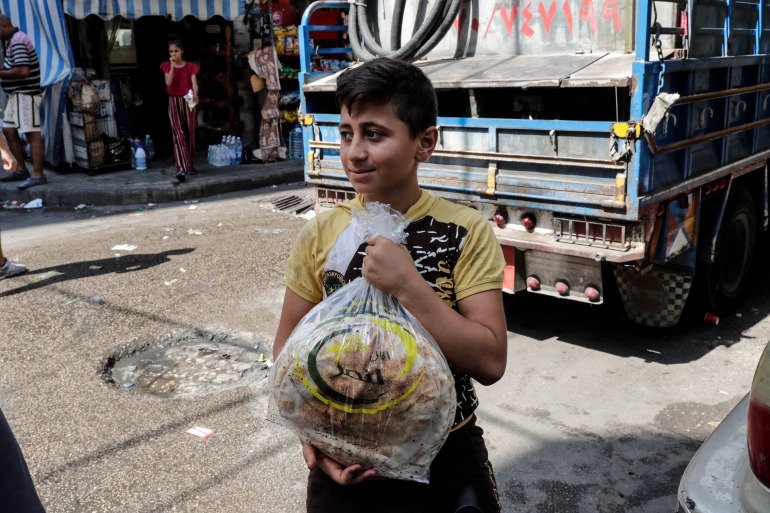The war in Ukraine has left cash-strapped Lebanon scrambling for alternative sources of fuel and wheat.


Beirut, Lebanon – Saheer Ghazzaoui, a 24-year-old graphic designer, was already spending the majority of her income helping to provide for her family.
But now, with fuel prices surging in Lebanon, and fears of wheat shortages as a result of Russia’s war in Ukraine, the money she brings in each month is no longer enough.
"We struggle to get gas, and we’re already paying so much for food, medicine, and tuition,” Ghazzaoui told Al Jazeera. "[Now] all our salaries are going just to the necessities, and sometimes it’s not even enough so I have to [take out money] from my savings.”
Up to 90 percent of Lebanon’s wheat and cooking oil imports come from Ukraine and Russia, as well as a large proportion of grain imports. The fighting in Ukraine has engulfed the country’s southern ports, putting a stop to shipments, and imports from Russia have been hampered as a result of financial sanctions imposed on Moscow.
The impact means that Lebanon now has only one month’s wheat reserves left, deepening an already-existing food security crisis in the country.
Additionally, due to the sharp increase in global oil prices, official prices of fuel in Lebanon have increased by a staggering 33 percent since Russia’s invasion of Ukraine less than two weeks ago.
These ongoing developments have worsened Lebanon’s economic crisis, which has already pulled more than three-quarters of the country’s population into poverty, and devalued the Lebanese pound by about 90 percent against the US dollar since August 2019. Lebanon’s food inflation is now among the highest in the world, with food prices rising by 1000 percent.
The impact of the war in Ukraine, on top of the preexisting situation, therefore threatens to bring more unrest to the country. The government is now seeking to avoid a repeat of last summer when public life in Lebanon was virtually paralyzed as long queues and rationing at petrol stations and grocery stores put the cash-strapped country on edge.
Mohammad Abou Haidar, the director general of Lebanon’s Ministry of Economy and Trade, told Al Jazeera that the ministry’s Consumer Protection Directorate has carried out inspections of grocery stores, petrol stations, and bakeries across the country in an attempt to prevent illicit price hikes and hoarding by business owners.
But the ministry has only 17 inspectors available to monitor thousands of businesses, forcing Abou Haidar to join the inspections himself.
"[Some supermarket owners] want to remove cooking oil from the shelves and hoard them, while importers are rationing fuel supplies as much as possible,” Abou Haidar told Al Jazeera. "Of course it causes panic. If you and I saw this, we’d run to the store to buy a few gallons of oil.”


